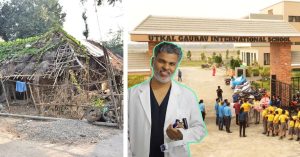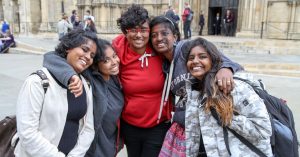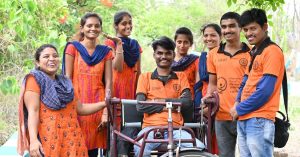My Tribe Has Been Criminalised For 200 Years; I’m Helping Thousands Win Their Rights Back
Deepa Pawar’s own experiences as a member of the gadhiya lohar tribe shaped her organisation Anubhuti Trust, a women-led organisation that works for upliftment of India’s nomadic and denotified tribes.
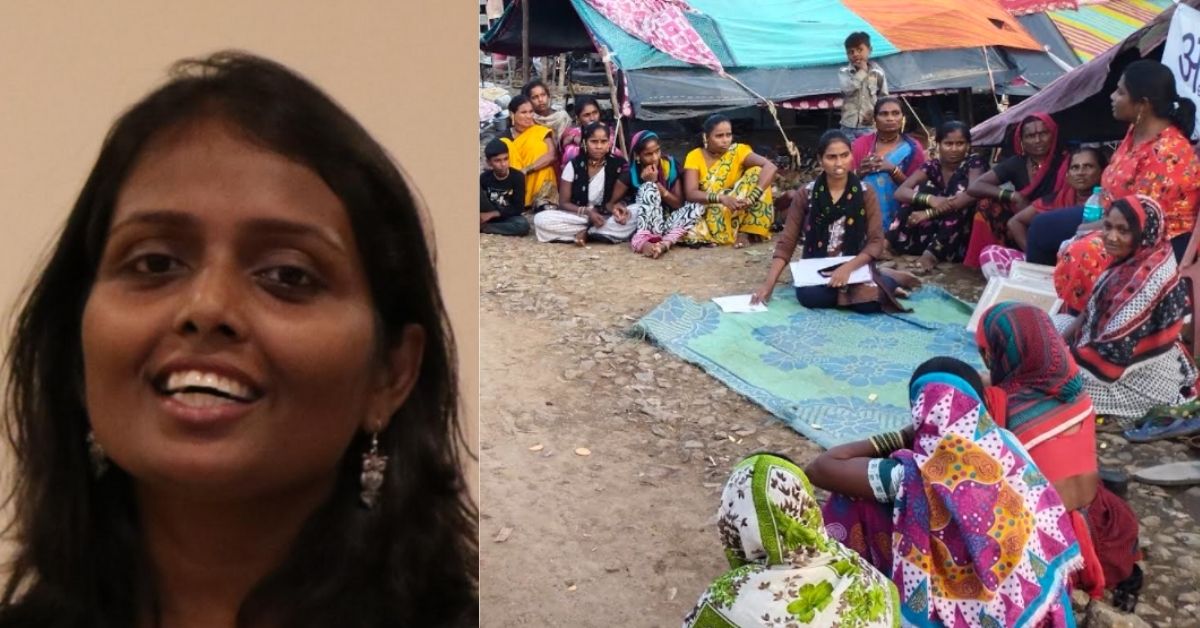
For Nomadic and Denotified Tribes (NT-DNT), August 31 marks an additional Independence Day. In 1952, the Government of India repealed the Criminal Tribes Act, 1871, in hopes that members of NT-DNT communities would find a secure future, one free of discrimination, after facing years of violence and vilification.
In the 1800s, when the British government had passed the Act, it had branded almost all tribes falling under this category as being “addicted to the systematic commission of non-bailable offences”. Their occupation, social practices, and very appearance were evidence enough of criminal activity. Adult males would often have to give hazoori, i.e, report weekly to the local police. Many restrictions were imposed on movement, and unlawful arrests, unjust punishment, and denial of even necessities were commonplace.
What has changed since these so-called criminal tribes were denotified in ’52? The Indian Express wrote, “Many denotified tribes continue to face the ‘taint of criminality’ — the police, courts, and society continue to view them as criminals. Narratives of genetic criminality have been replaced with narratives of economic need, group immorality, compulsive indiscipline, or addiction to narcotic substances. They are default suspects in cases of theft and dacoity — indiscriminate detention, arrest without warrant, recording of photographs and fingerprints for surveillance and custodial torture continue to be methods practised by state agencies against these communities.”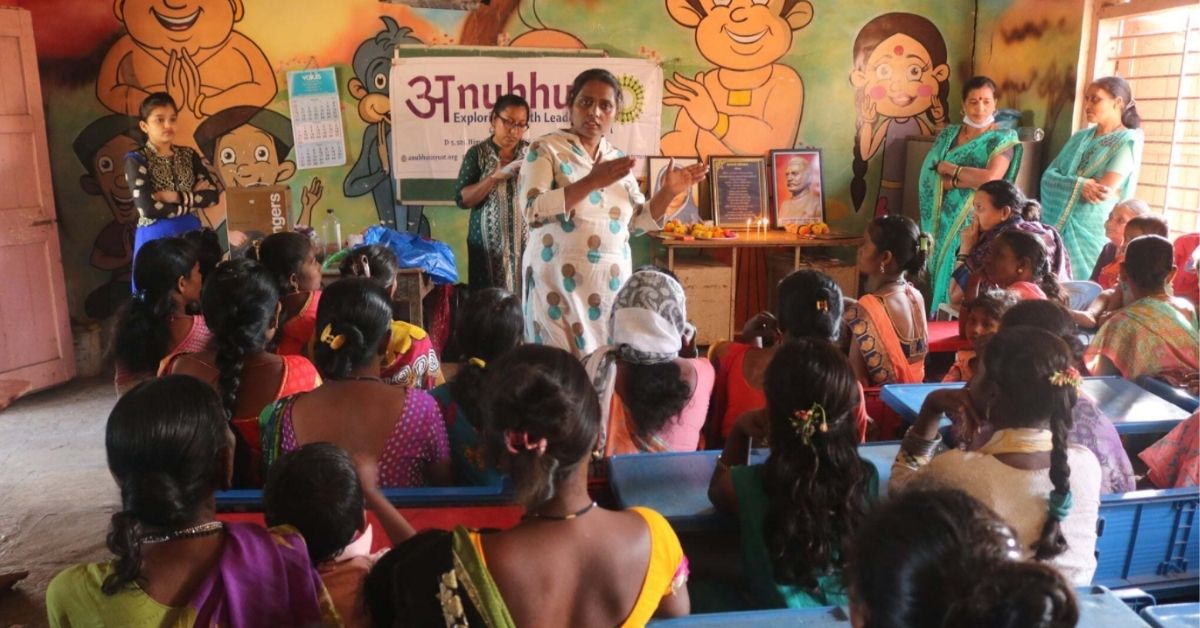
Deepa Pawar (33) notes that understanding the history of NT-DNTs is important to address their current status. “The first thing to understand is the historical criminalisation of these tribes. We have so many forms of art, talents, and even languages, which are all threatened by our subjugation. Years have passed since the tribes were denotified, but even today, we are the first ones to be penalised.”
“Someone who doesn’t have land will no doubt be powerless,” she explains in conversation with The Better India. “If you don’t have land, you don’t have four walls to protect you or a place to keep your things. You don’t even have basic documentation. So NT-DNTs are left vulnerable. Mainstreaming is difficult without social security, access to legal aid, healthcare…these factors essentially decide whether you live or die.”
Pawar, who belongs to the nomadic gadhiya lohar community, runs Anubhuti Trust to initiate this very mainstreaming. This women-led organisation, launched in 2015, works for the upliftment of NT-DNT communities through areas of mental justice, leadership training, inclusion in sociopolitics, addressing sexual and reproductive health rights, and more. So far, they have worked across 15 Maharashtra districts to benefit thousands of community members with these programmes.
‘Will we be able to survive this?’
Raised in Thane’s Badlapur city, Pawar began working in the social sector when she was only 14. Around the same time, she and her four sisters lost their father. Before that, the family lived in a tent in a basti, where Pawar would help her father out while he wielded weapons and tools from iron. “But after he passed, I knew continuing my education would not be possible without an additional source of income,” she recalls. “So taking up social work was, at first, more from the need to be able to study than anything else. I’d get Rs 300 per month.”
Pawar worked with various NGOs for over 16 years, mainly for the development and empowerment of women. But her work helped her come to terms with a peculiar fact.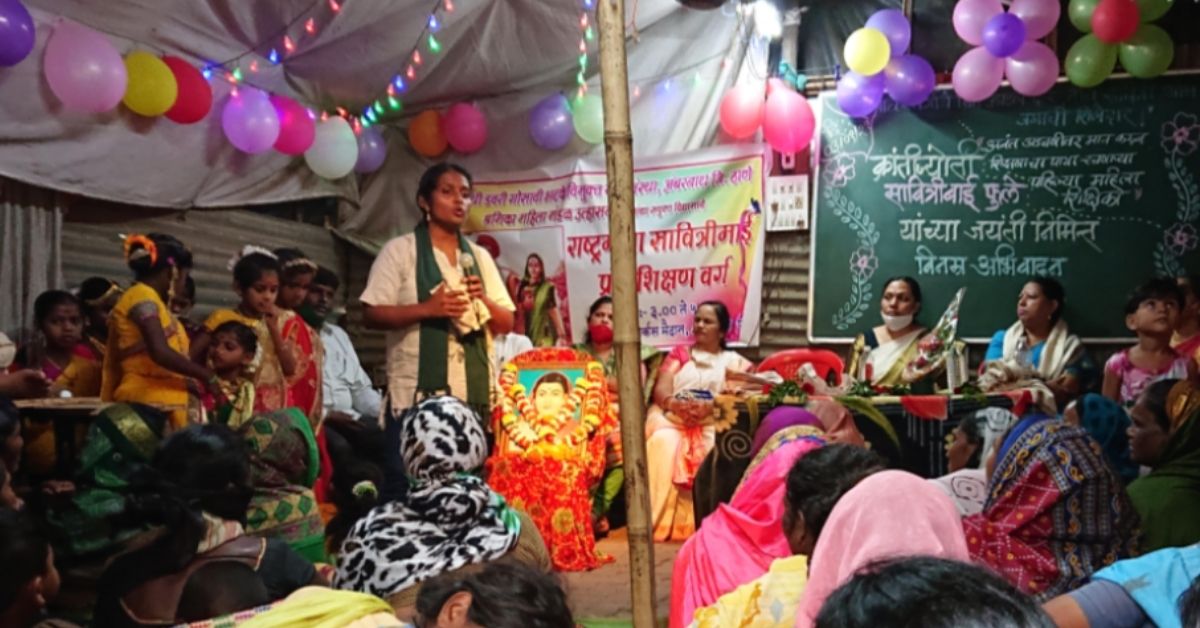
The women that she was working to empower were indeed way above her own community in societal hierarchy. “They needed a lot of aid in almost all aspects. And yet, the community that I come from lacked even the very basics that they had — like a shelter over our heads,” she says.
“Any time a disaster, political upheaval, or any sort of distress happens, NT-DNT communities are left with one question — will we be able to survive this?” Pawar notes. “For this, accessing the rights laid down for us in the Constitution is extremely important.”
This idea forms one of the core programmes of Anubhuti. Their constitution literacy programme is called Hum Samvidhani. “We target marginalised youth here, those who exist in extreme poverty, face caste bias and vulnerabilities, and so on.”
“We look at the fundamental rights in our Constitution and what they dictate. For example, someone’s sex, religion, caste, etc does not warrant discrimination and violence. But when someone is unaware of these, there’s a sense of social guilt that follows. They begin thinking they are weak, and deservedly so, so they surrender before the institution that oppresses them, without realising that their rights dictate otherwise.”
The programme goes to colleges across districts to directly address the youth, alongside training elected leaders and other stakeholders. “Then these leaders go on to work in social justice, equal participation, constitutional opposition, and more. They will address their health, needs of water and sanitation, and the like.” The youth are engaged through debates, arts, music, and theatre.
The second programme focuses on community resilience. “Our communities are robust from within and have been able to sustain for centuries. We have our own sign languages, with which we were able to communicate with the British. Different communities have in-built skills in arts, athletics, and more. But marginalisation weakens that. So we focus on building these capacities — reducing domestic violence, early marriage, caste hierarchies within the tribes, and relief work, especially now during COVID.”
How mental health ties in with human rights
She adds, “How to reduce mental panic and addiction, address local politicians, provide moral support — we address these questions as well.”
Another programme works for mental justice. “An individual is not always solely responsible for their mental collapse. Societal hierarchies, gender bias, inequalities, caste violence, communalism…they all play a role here. And privileges are subject to change. For NT-DNTs, too, mental deterioration happens due to their place in society. We believe any individual’s mental health is tied to their rights and the justice they get.”
She notes, “I remember that when I was working with my father if there was any case of violence or dispute in the area, authorities would question us. They’d ask, in the most insulting and disrespectful ways, if we were the ones who supplied the weapons. It would leave us humiliated in public. So when things haven’t changed in 200 years, since when the Act was passed, how can this community’s mental well-being be ensured?”

Pawar explains that the present literature around mental health is extremely westernised. “Can I address mental health and use terms like ‘anxiety’ and ‘depression’ with such marginalised groups? How will they relate? So we try to change that literature. We train our grassroots leader to explain mental health in the simplest ways possible. We encourage people to let go of the guilt and shame of subjugation. We explain how historic discrimination works, and what they can do to alleviate the mental stress of that.”
For this, Anubhuti engages members in games and carnivals, where people are allowed to laugh or cry the way they want. Changes in moods are addressed in simple terms — “Kya aapko andar se karvaahat mehsoos ho rahi hai? (Do you feel a bitter taste from within?” “Aapki zindagi ka namak kam ya zyada ho raha hai? (Is the salt in your life reducing or increasing?)”, and so on.
“It’s very interesting to see how simply people can understand their mental health and the reasons behind its deterioration this way,” Pawar says. “We give out diaries that equip them with tools to understand the idea better.”
She adds that this mental justice programme has reached out to around 6,000 NT-DNTs this way. Meanwhile, the constitution literacy programme has empowered around 4,000 members.
Apeksha, a 20-year-old living in Dombivali, Thane, says, “All through my childhood, I was told to follow a certain path and etiquette because I’m a woman. For example, if we were not home before 7 pm, we were chided and beaten. But Anubhuti Trust has taught all of us why that is wrong. The youth of our tribe feel more confident — we have taken charge to mobilise our community, organise events, talk to people and hold our own. Our differences are reducing bit by bit, we’re able to understand one another a little better.”
“These have been my biggest learnings,” she adds. “I can connect with the sufferings of others. My personality development began only when the organisation started working in our area.”
She says the youth is also taught how to nurture and lead healthy romantic and sexual relationships, which are otherwise demonised and used as an excuse to inflict violence by authorities. She says they are taught to look at relationships from the lens of gender, legalities, mental health, body politics, consent, and more.
Breaking a bias against yourself
Meanwhile, Pawar notes that being a woman has helped her work harder towards the upliftment of NT-DNTs. “Challenges are rife in the work we do, but being a woman provides me with the right lens to view our issues. The community I come from also drives me to work harder,” she says.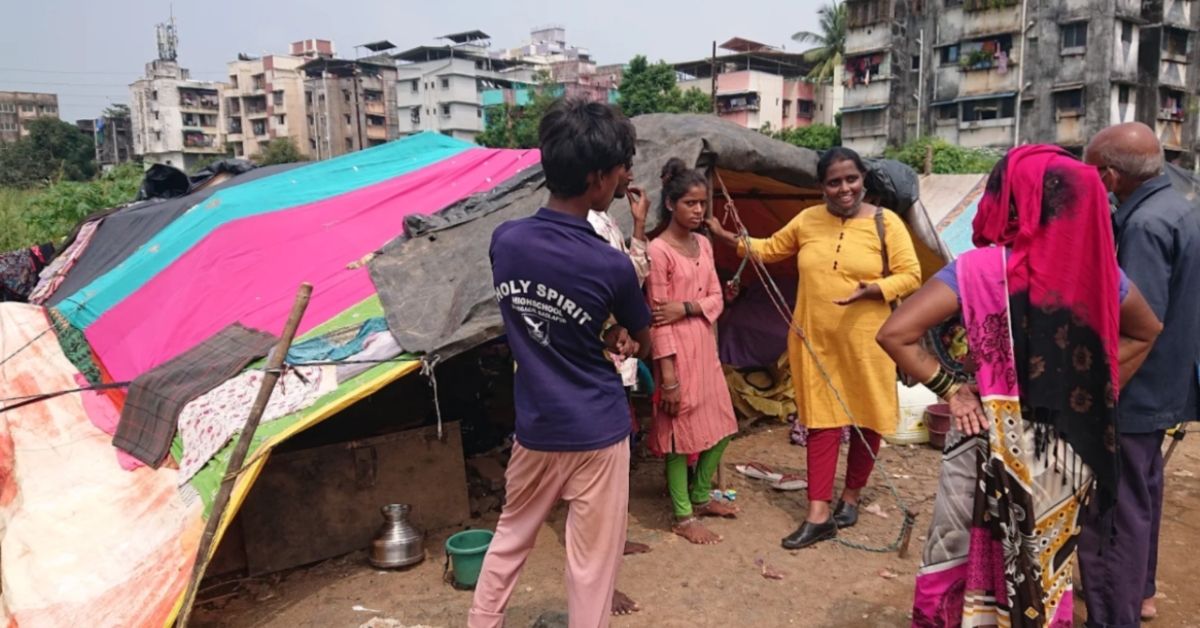
“When I was growing up, there was resistance from within my community, because they do not believe a woman should engage in such outspoken behaviour, or challenge pre-existing notions. Bolne waali auraton ka characterisation kiya jaata hai (Women who speak out are often questioned about their character). But things are changing slowly, and the opposition is turning into support.”
Pawar says that she has learned to acknowledge that she did not grow up with any privilege. “I grew up without connections or a network to reach out to. So when I represent NT-DNTs internationally or attempt to address the issues in the mainstream, I find that void still exists. I have to work just a little harder to make myself heard.”
Over the years, she has learnt how to overcome the feelings of guilt and shame, and how to stop thinking of herself as weak, she says. “Another thing I have learnt is to understand how much lived experiences matter. Our experiences help us understand sufferings and ground realities better than most think.”
Presently, Anubhuti is working on strengthening its constitution literacy programme and involving more girls to encourage political participation.
If you would like to support Anubhuti’s cause, you can visit this link.
Edited by Yoshita Rao
This story made me
- 97
- 121
- 89
- 167
Tell Us More
We bring stories straight from the heart of India, to inspire millions and create a wave of impact. Our positive movement is growing bigger everyday, and we would love for you to join it.
Please contribute whatever you can, every little penny helps our team in bringing you more stories that support dreams and spread hope.






